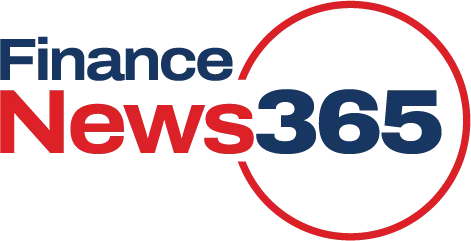
Understanding Personal Finance Impacts of Default
Just how severe can the impacts of loan default be on your finances? Discover the hidden consequences that could affect your future.


After defaulting on debt, you should start by evaluating your financial situation. Gather all your financial documents and establish your priorities by focusing on essential expenses. Communicate with your lenders early to explore repayment options such as lower payments or extended terms. Consider loan rehabilitation programs to restore your account and research consolidation options to manage multiple debts effectively. Create a realistic repayment plan using budgeting strategies. Finally, seek professional advice to improve your financial literacy and credit repair strategies. Understanding these steps is vital for recovery and building a more stable financial future.

When you face the fallout of defaulting on debt, the first step is to assess your financial situation. Start by gathering all your financial documents, including bank statements, bills, and any outstanding debts. This thorough overview allows you to understand where you stand.
You’ll need to identify your financial priorities, focusing on essential expenses like housing, utilities, and food.
Next, create a list of your debts, noting the amounts owed and their interest rates. This will help you determine which debts need immediate attention.
After that, develop a budgeting strategy that aligns with your current income and expenses. Consider using the 50/30/20 rule, which allocates 50% of your income to needs, 30% to wants, and 20% to savings or debt repayment.
Adjusting your lifestyle might be necessary to meet your financial goals, so look for areas to cut back.
Regularly review your budget and adjust it as needed, ensuring you stay on track with your financial priorities. By taking these steps, you’ll gain a clearer picture of your situation, enabling you to make informed decisions moving forward.
How does defaulting on debt impact your financial future? When you default, the first major consequence is a significant drop in your credit score. This score reflects your creditworthiness and influences your ability to secure loans, credit cards, or even rent an apartment. A low credit score can lead to higher interest rates on future borrowing, making it more expensive to manage your finances.
Additionally, defaulting can result in financial stress that extends beyond just your credit score. You may face collection calls, legal actions, or wage garnishments, all of which can create a heavy emotional burden. This stress can also affect your overall well-being and lead to difficulties in managing other aspects of your life.
Moreover, defaulting on debt can limit your access to financial products. Lenders may view you as a high-risk borrower, making it challenging to rebuild your financial standing.
Understanding these consequences is vital as you navigate the aftermath of default. By recognizing the long-term effects on your credit score and the financial stress involved, you can better prepare yourself for the steps ahead in regaining control of your financial future.
After defaulting on your debt, it’s essential to assess your situation before reaching out to your lenders.
Initiating contact early can open up a dialogue that might lead to exploring various repayment options tailored to your needs.
Clear communication can’t only help you understand your choices but also demonstrate your willingness to resolve the issue.
Evaluating your situation is essential after defaulting on debt, and open communication with your lenders can make a significant difference. Start by taking a close look at your financial priorities. Identify which debts are most pressing and which can be managed over time. This evaluation will help you understand where to focus your efforts.
Next, consider your current budgeting strategies. You may need to adjust your budget to accommodate your financial realities. Track your income and expenses to see where you can cut back. This might involve reducing discretionary spending or finding ways to increase your income, such as taking on extra work.
Once you have a clear picture of your financial situation, it’s time to reach out to your lenders. They may offer options like payment plans or temporary relief. By proactively discussing your circumstances, you demonstrate responsibility and a willingness to resolve the issue.
Reaching out to your lenders early can make a world of difference in your debt recovery journey. When you communicate proactively, you demonstrate responsibility and a willingness to address your financial situation. This is an important step in effective debt management. By contacting your lenders, you open the door for dialogue, allowing them to understand your circumstances better.
Many lenders appreciate when borrowers take the initiative to discuss their situation. This can lead to potential solutions that may not be available if you wait too long. It’s essential to be honest about your financial challenges and express your commitment to finding a resolution. This approach not only helps you maintain a positive relationship with your lenders but also strengthens your financial literacy.
Being informed about your rights and options can empower you during these conversations. You might discover that lenders have programs designed to assist those struggling with debt. Early communication can also prevent further penalties or damage to your credit score.
Frequently, borrowers overlook the importance of exploring repayment options with their lenders after defaulting on debt. Open communication with your lenders can lead to solutions you mightn’t have considered. Many lenders are willing to negotiate and may offer various repayment plans, including lower monthly payments, extended terms, or even reduced interest rates.
Start by reaching out to your lender as soon as possible. Be honest about your financial situation and express your willingness to find a solution. This is where debt negotiation comes into play; you can work together to create a manageable plan tailored to your circumstances.
In addition to direct communication, consider seeking financial counseling. Professional counselors can provide guidance on how to approach lenders, help you understand your rights, and assist in negotiating terms that work for you.
They can also offer strategies for budgeting and managing your finances moving forward.
If you’ve defaulted on your debt, exploring loan rehabilitation options can be an important step toward regaining financial stability. Loan rehabilitation programs are designed to help you get back on track by allowing you to make reduced payments over a period.
This process often involves making a series of on-time payments, which can lead to the restoration of your account to good standing. By participating in these programs, you might also become eligible for loan forgiveness after meeting specific criteria.
For instance, certain federal student loans may offer forgiveness after you’ve made a certain number of qualifying payments. It’s vital to research the details of different rehabilitation programs available to you, as they can vary based on the type of debt you have.
You should reach out to your loan servicer or lender for guidance on how to initiate rehabilitation. They can provide you with information on the necessary steps and requirements to enroll in these programs.
Taking action now can’t only improve your credit score but also provide you with a sustainable plan to manage your debt moving forward.
After defaulting on debt, considering debt consolidation can be a practical step toward regaining financial stability.
It allows you to combine multiple debts into a single loan, often with a lower interest rate, making payments more manageable.
Before you proceed, it’s crucial to understand the benefits, evaluate the available options, and know the steps to get started.
Debt consolidation can be a powerful tool to regain control of your financial situation. By combining various debt types—like credit cards, medical bills, or personal loans—into a single, manageable payment, you can simplify your financial obligations. This approach often leads to lower overall monthly payments, as it typically involves securing a loan with more favorable loan terms than your existing debts, such as lower interest rates.
Read Also: Personal Finance Impacts of Default
One significant benefit of debt consolidation is that it can improve your credit score over time. When you pay off multiple debts with a single loan, you decrease your credit utilization ratio, which is a key factor in determining your creditworthiness. Additionally, having one payment instead of several can help you stay organized and avoid missed payments, which can further harm your credit.
Moreover, debt consolidation can provide you with a clear timeline for becoming debt-free. Knowing your new loan terms allows you to plan your budget more effectively.
Once you’ve recognized the benefits of debt consolidation, it’s time to assess the options available to you. One common approach is to evaluate a debt management plan, which can help streamline your payments and lower your interest rates. This often involves working with a credit counseling agency that negotiates with your creditors on your behalf.
By consolidating your debts into a single monthly payment, you can simplify your financial situation and potentially reduce the overall amount you owe.
Another option is to take out a personal loan to pay off your existing debts. This method allows you to consolidate multiple debts into one loan, ideally at a lower interest rate. However, it’s essential to review the terms carefully and verify that you can manage the new loan’s monthly payments.
You might also explore balance transfer credit cards, which often offer promotional rates for transferring existing debt. While this can save you money, be aware of potential fees and the importance of paying off the balance before the promotional period ends.
In evaluating these options, reflect on your financial situation and seek professional advice to make informed decisions.
Getting started on your journey to debt consolidation can feel overwhelming, but breaking it down into manageable steps makes the process easier.
First, assess your current financial situation. List all debts, including interest rates and monthly payments. This gives you a clear picture of what you owe.
Next, research various debt consolidation options. These may include personal loans, balance transfer credit cards, or debt management programs. Each option has different terms, so compare them carefully.
Once you’ve identified a suitable option, consider seeking professional advice. Financial education resources, like credit counseling services, can provide valuable insights into managing your debts effectively. They may also assist you in negotiating for debt forgiveness if applicable.
Before committing to a plan, confirm you understand the terms and potential impact on your credit score.
Once you’ve made your choice, create a budget that accommodates your new repayment plan. Stick to it diligently to avoid falling back into debt.
Creating a repayment plan is essential for regaining control over your finances after defaulting on debt. Start by evaluating your current financial situation, including your income, expenses, and outstanding debts. This initial step will help you understand how much you can allocate toward repayments each month.
Next, consider implementing budgeting strategies that work for you. For instance, the 50/30/20 rule can be a helpful framework: allocate 50% of your income to needs, 30% to wants, and 20% to savings and debt repayment.
Once you have a clear view of your finances, set realistic financial goals. These could include paying off a specific debt within a certain timeframe or saving a particular amount each month.
Prioritize your debts by interest rates or balances, choosing either a debt snowball or avalanche method based on what motivates you.
After establishing a repayment plan, it’s wise to seek professional advice to navigate your options effectively. Financial counseling can provide you with the knowledge and tools necessary to improve your financial literacy. A counselor can help you develop budgeting strategies that suit your lifestyle, ensuring you manage your expenses while adhering to your repayment plan.
You might also consider legal assistance if you’re facing potential lawsuits or asset protection issues. A legal expert can guide you through negotiation tactics with creditors, helping you reach a settlement that works for you. Additionally, they can offer insight into your rights and obligations under the law.
Emotional support is another essential aspect of this journey. Professionals can offer guidance, helping you cope with the stress that often accompanies debt management. They can help you understand your options, including various payment strategies that could alleviate some of your burdens.
Lastly, investing time in credit education can empower you to make informed choices moving forward. By seeking professional advice, you position yourself to regain control over your financial situation and work towards a more secure future.
Once you’ve established a repayment plan and sought professional advice, focusing on credit repair becomes essential. Start by obtaining your credit reports from the major credit bureaus. These reports provide a thorough view of your credit history, including your credit score and any outstanding debts.
Understanding your credit utilization—how much of your available credit you’re using—can also help you identify areas for improvement.
Consider enrolling in credit counseling to gain insights into managing your finances more effectively. A counselor can assist you in devising strategies for credit rebuilding, including ways to make timely payments on existing credit accounts.
Monitoring your credit regularly through credit monitoring services can alert you to any changes or potential issues that may arise.
If you find inaccuracies in your credit reports, don’t hesitate to file credit disputes. Correcting these errors can greatly boost your credit score.
Additionally, be mindful of your credit limits; keeping your balances low relative to these limits can positively impact your credit utilization ratio.
In summary, defaulting on debt can be intimidating, but it’s essential to take proactive steps to regain control of your finances. Start by evaluating your situation and communicating with lenders about your options. Consider exploring rehabilitation or consolidation strategies and create a realistic repayment plan. Additionally, seeking professional advice can provide valuable insights. Finally, focusing on credit repair will help you rebuild your financial standing. Remember, taking these steps can lead to a more stable financial future.

Just how severe can the impacts of loan default be on your finances? Discover the hidden consequences that could affect your future.

The consequences of defaulting on debt can be dire; discover how ignoring your obligations can spiral into legal chaos.

Defaulting on a loan drastically diminishes future borrowing options, but understanding the reasons behind this can empower your financial decisions.

Bouncing back from a loan default can be challenging; discover how it impacts your credit score and what steps you can take to recover.